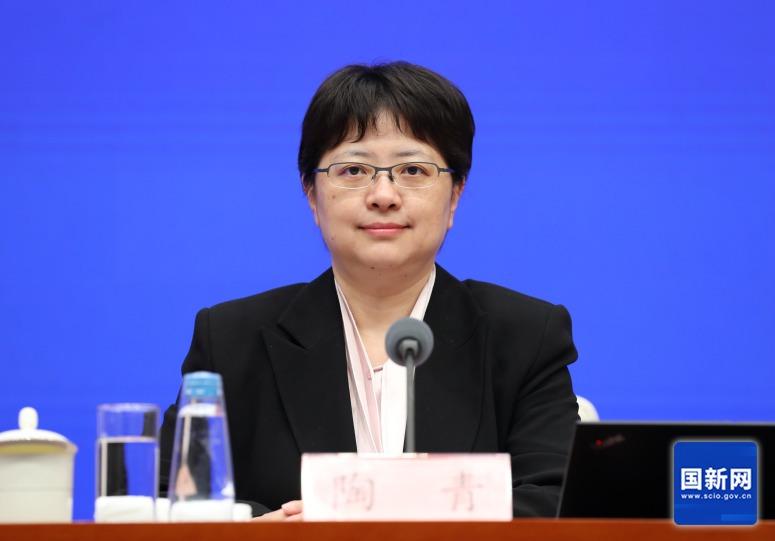 This undated photo shows Tao Qing, spokeswoman for the Ministry of Industry and Information Technology. (PHOTO / STATE COUNCIL INFORMATION OFFICE, CHINA)
This undated photo shows Tao Qing, spokeswoman for the Ministry of Industry and Information Technology. (PHOTO / STATE COUNCIL INFORMATION OFFICE, CHINA)
BEIJING – China will step up the development of artificial intelligence chips as part of its efforts to promote fundamental technological breakthroughs in AI and introduce the applications of cutting-edge technology in more sectors, the country's top industry regulator said on Friday.
Tao Qing, spokeswoman for the Ministry of Industry and Information Technology, said at a news conference that the development of AI, represented by large language models or LLMs, features rapid technological innovation, strong application potential and fierce international competition.
"Through major scientific and technological innovation projects, we will focus on promoting fundamental and original technological breakthroughs in large language model algorithms, frameworks and other fields, improving the computing power level of intelligent chips and unleashing data value," Tao said.
We will give full display of the strong cognitive, interactive and generative characteristics of large language models to promote the upgrading of high-end equipment, key software and intelligent terminals.
Tao Qing, Spokeswoman, Ministry of Industry and Information Technology, China
The ministry will encourage enterprises even more to accelerate their efforts for the intelligent transformation of the country's vast manufacturing sector. More efforts will be made to deepen the application of AI in the entire manufacturing process, including research and development, production, service, management and other links, Tao said.
"We will give full display of the strong cognitive, interactive and generative characteristics of large language models to promote the upgrading of high-end equipment, key software and intelligent terminals," Tao said.
China's equipment manufacturing industry grew 6 percent year-on-year in the first three quarters of this year.
Meanwhile, investment in high-tech industries grew 11.4 percent year-on-year in the same period, encouraging the manufacturing sector to develop steadily toward high-end and green ventures, data from the National Bureau of Statistics showed.
The manufacturing activity is showing signs of a pickup as the continuing positive effects of supportive policies have spurred overall economic activity, said Zhang Wenlang, chief macroeconomic analyst with investment bank China International Capital Corp.
China's industrial output, an important economic indicator, rose 4 percent year-on-year in the first three quarters, accelerating by 0.2 percentage point over the first half of the year, NBS data showed.
Efforts to accelerate the development of homegrown AI chips coincide with sustained restrictions by the United States on exports of AI chips to China.
Chinese AI company iFlytek Co Ltd said on Thursday night that Washington's tightening of export controls on cutting-edge AI chips will have a significant impact on Chinese companies that build LLMs on processors made by US chipmaker Nvidia.
But iFlytek also said it launched a special research project with Huawei Technologies Co earlier this year to jointly build a new AI base in China. The performance of Huawei's AI processor Ascend 910B can roughly compete with Nvidia's A100 chip.
iFlytek said it and Huawei will jointly release their new AI computing solutions next week.
For their part, local governments, like those of Beijing and Shenzhen, a metropolis in Guangdong province, announced favorable policies in June to support the development of domestically developed AI chips.
Li Xianjun, a researcher at the Institute of Industrial Economics, which is part of the Chinese Academy of Social Sciences, said China should take the initiative to promote the re-globalization of the semiconductor industry, given that the country is the world's largest chip market with a growing presence in semiconductor manufacturing.
To break the US' containment in chips, China needs to rely on long-term input in R&D to achieve self-reliance in key chip technologies, Li said.


